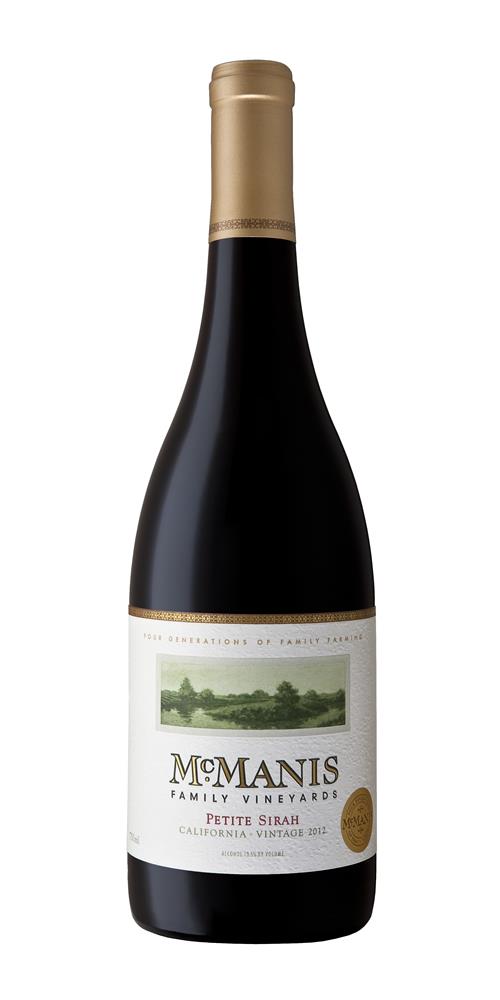4784 products
4784 products
Sort by:
Most Popular
Bodegas Casa Castillo is located on the plateau of Jumilla where its 174 hectare vineyard enjoys a high altitude and the cooling influence of the Mediterranean. Lovers of Bandol reds will enjoy this lovely smooth, full bodied red from Casa Castillo, a blend of Monastrell 60%, Garnacha 20% and Syrah 20%.
It's made from old bush vines which provide very small amounts of highly concentrated juice. Modern winemaking with cold macerations retains freshness and new French oak provides structure. The wines are generally bottled unfiltered to allow them to be as expressive as possible and they are a bargain for the quality produced.
Bodega Terras Gauda overlooks the gentle green countryside of Galicia in north west Spain where its vineyards are planted. Terras Gauda uses its own yeasts, selected from its vineyards. These yeasts are unique to the winery and have been patented. This is one of the reasons the TG wines are so consistent because they don’t need to rely on commercial yeasts.
Chill this wine to 12 degrees and break out your best seafood, recommends wine importer Sophie Cotter, who brings this wine into New Zealand.
Albarino is on trend globally right now and originally comes from north west Spain and the north of Portugal, where makes its fresh, zesty, dry as a bone and super flavoursome taste go particularly well with seafood. This wine comes from Terras Gauda Winery on the Spanish side of the Minho River, which separates Portugal from Spain.This region and its Portuguese counterpart over the border is the original home for the Albarino grape, known in Portugal as Alvarinho.
Al Muvedre is a varietal Monastrell from Alicante created by Telmo Rodríguez.
The grapes come from old vines in vineyards located in the town of Monóvar in the province of Alicante. The harvest, done by hand, is performed in late October, and goes through a process of fermentation in stainless steel and concrete. The wine is full of purple fruit, black olive tapenade and spice, a rustic, exciting expression of Monastrell.
Located in the Sonoma wine region of California, the name Chalk Hill comes from the unique volcanic soil of chalky white ash, which is a near perfect match for the planting of white wine varieties, like Chardonnay. The vineyards quest for quality has always been the basis for all their winemaking decisions.
This wine is balanced and bright with concentrated flavours of creamy lemon custard, poached pear, almond, and spice. Pair this Chardonnay with grilled salmon in a garlic butter sauce.
100% malolacitc fermentation - nine months on the lees in Hungarian oak 10% of which is new and 20% is one year old.
Durif, also known as Petit Sirah is a red wine grape variety known for making juicy, plummy, tannic wines. The McManis Petite Sirah is bright, yet deep purple colour. The nose is ripe and fruity, with aromas of blackberry, toffee and a touch of clove. On the palate the wine is rich with dark berry flavours. This is a great example of a lesser known grape variety.
Yalumba Wines was established in 1849 near the town of Angaston, South Australia in the Barossa Valley wine region and it remains in family hands today, despite being a high volume producer - and an innovator of high quality small batch wine too.
This 2 litre cask of Merlot is soft, smooth and fruity in flavour with a medium body and finish. It is made to be consumed now; not to be aged. Enjoy in moderation and preserve its life once opened by storing it in the fridge.
It's easy to forget the raging popularity of bag in box wine and its pivotal role in the early modern days of the New Zealand wine industry; back in the early 1990s it made up 70% of wine sales in this country and has since waned as bottled wine production has grown.
The quality of bag in box wine is, however, better than ever, and this wine is dry with fruity flavours and soft, low acidity, making it easy to drink and smooth.
Just a note on their storage: these boxes should be kept in a cool place, preferably the fridge, which will ensure they remain fresh once opened. They should also be consumed within a month of opening to retain maximum flavour quality and freshness.
It's easy to forget the raging popularity of bag in box wine and its pivotal role in the early modern days of the New Zealand wine industry; back in the early 1990s it made up 70% of wine sales in this country and has since waned as bottled wine production has grown.
The quality of bag in box wine is, however, better than ever, and this wine is dry with light red fruity flavours and soft, low acidity, making it easy to drink and smooth.
Just a note on their storage: these boxes should be kept in a cool place, preferably the fridge, which will ensure they remain fresh once opened. They should also be consumed within a month of opening to retain maximum flavour quality and freshness.
The grapes used in the production of Dow’s Fine Ruby were a blend of traditional Portuguese varieties from the Douro Valley, such as Touriga Nacional, Touriga Franca, Tinta Barroca, Tinta Roriz and Tinto Cao. Dow’s Fine Ruby was aged in seasoned oak casks at our lodges in Vila Nova de Gaia for an average of 3 years, and bottled when ready to drink. Exuberant youthful fruit flavours make it perfect for informal drinking.













